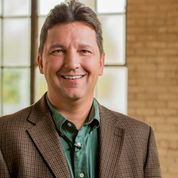In 1872, President Ulysses S. Grant was stopped for recklessly driving his carriage through Washington D.C. One published account says that the officer, an African American named William West, warned Grant, “Your fast driving, sir . . . is endangering the lives of the people who have to cross the street.” Grant apologized but the next night was racing carriages again. West stopped Grant’s horses. “I am very sorry, Mr. President, to have to do it, for you are the chief of the nation and I am nothing but a policeman, but duty is duty.” West arrested the president.
I admire this brave man for doing his duty. So did Grant. He praised West and made sure he kept his job. God also was pleased, for He hates the injustice of favoritism. He says, “Believers in our glorious Lord Jesus Christ must not show favoritism” (James 2:1). That includes not giving special favors to the rich and powerful, leaving only leftovers for the poor (vv. 2-4). Instead, we’re called to love our neighbor as ourselves. If we play favorites, serving our platinum club neighbors rather than the less privileged, we “sin and are convicted by the law as lawbreakers” (v. 9).
God didn’t play favorites with us. He loved us when we had nothing to offer, when we were “without hope and without God in the world” (Ephesians 2:12). With His help, we can love all people equally.
